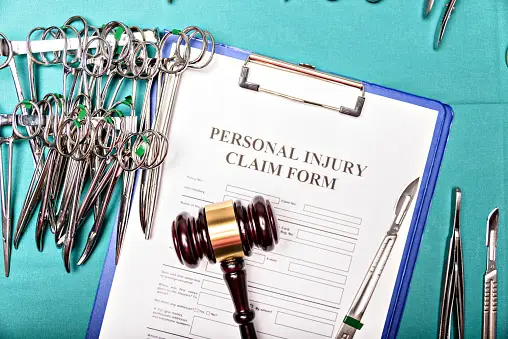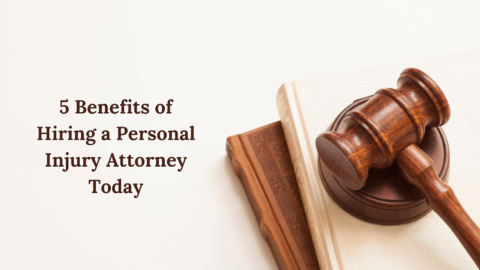Post Preview
Key Takeaways
- What constitutes a personal injury case, and what are the common types?
- The importance of gathering and preserving evidence.
- How to navigate the legal process of a personal injury claim.
- The role of medical documentation in personal injury cases.
- Common challenges faced during personal injury cases and how to overcome them.
- When and why to consult a personal injury attorney.
A personal injury case is filed when someone is injured in an accident, and there’s a possibility that someone else could be held legally liable. The situations can vary, but the basic principle remains the same: the harm was inflicted by another individual’s recklessness or intentional misconduct. Anyone seeking legal assistance, especially in the Phoenix area, can benefit from the unique skills of Gallagher & Kennedy Phoenix injury attorneys in navigating these intricate situations. Comprehending the fundamental components of a personal injury case is essential to safeguard your rights and guarantee you get the money you are entitled to.
Common Types of Personal Injury Cases
Various personal injury cases present distinct legal intricacies. Traffic accidents are frequent and usually occur due to reasons such as driver mistakes, road conditions, and problems with the vehicle. The data shows that personal injury claims are often filed because car accidents are a leading factor, resulting in significant annual incidents. Accidents involving slipping and falling are frequently seen in public spaces or workplaces due to unsafe conditions, leading to severe injuries. Workplace injuries, such as equipment malfunctions or hazardous behaviors, may result in employees seeking compensation. Medical malpractice is the term used to describe when healthcare providers fail to provide patients with the appropriate level of care. Different situations require different legal techniques; managing disputes effectively requires a grasp of these distinctions.
The Importance of Gathering Evidence
Evidence is pivotal in any personal injury case as it substantiates your claims and highlights the extent of your damages. Essential evidence can include photographs of the accident scene, medical records, incident reports, and witness testimonies. For example, in a car accident, photographs of vehicle damage and the accident scene, along with police reports, can provide a clear picture of what transpired. Witness statements can offer unbiased accounts that support your version of events. Preserving evidence is equally important. Timely collection and careful storage ensure that evidence remains uncompromised, bolstering your case’s credibility and strength.
Navigating the Legal Process
Although the legal procedure for a personal injury claim may appear overwhelming, it can be made more bearable by being aware of the steps. The first step is to file a complaint detailing your claims against the defendant formally. The discovery procedure, in which both parties communicate pertinent data and supporting documentation, comes next. Throughout this stage, talks frequently take place, with the intent to settle without going to trial. If discussions are unsuccessful, the matter may proceed to trial, when each side will appear before a judge or jury with evidence and arguments. Knowing these phases ahead of time makes the procedure less stressful and confusing.
The Role of Medical Documentation
Medical documentation in personal injury litigation is essential because it verifies the injuries received and the associated care. Treatment plans, diagnostic test results, doctor’s notes, and medical records can all be included in this paperwork. Since they offer a treatment timeline, demonstrate the severity of the injuries, and establish the link between the event and the injuries, accurate and thorough medical records are crucial. An NBC News report highlights the importance of correct and thorough medical documentation. Such records can significantly influence the compensation awarded, making them indispensable in personal injury claims.
Challenges Faced in Personal Injury Cases
Several challenges can arise during personal injury cases, each requiring careful navigation. Proving liability can be complex, especially when fault is disputed. This often involves detailed investigation and expert testimony to establish negligence or fault. Dealing with insurance companies presents another challenge. Insurers may attempt to minimize payouts or deny claims altogether, employing tactics to undermine your case. Legal complexities, such as statutory deadlines and procedural requirements, add another layer of difficulty. Overcoming these challenges typically involves thorough preparation, persistence, and sometimes, the expertise of a knowledgeable attorney to advocate on your behalf.
When to Consult a Personal Injury Attorney
Conversation with a personal injury attorney can significantly improve your likelihood of obtaining a positive outcome. An attorney’s ability to strategize, negotiate, and comprehensively grasp personal injury law is beneficial in complex cases. They can help gather and present evidence, guide through legal matters, and counter insurance company tactics. Several offer complimentary initial meetings to discuss your situation with a personal injury attorney without any obligations. This could assist you in understanding your legal choices and determining how to proceed with your case. The knowledge and guidance of a seasoned attorney can alleviate tension and substantially affect the case outcome.
Conclusion
Personal injury cases are intricate and multifaceted, requiring meticulous attention to detail and a systematic approach. Understanding what constitutes a personal injury case, the critical role of evidence, and the importance of proper medical documentation can facilitate navigating these complexities. Consulting a personal injury attorney can offer the necessary expertise and support if you find the process overwhelming. Their guidance can prove invaluable, helping you achieve a fair and just resolution. Whether dealing with a minor injury or a significant accident, being well-informed and prepared can make all the difference in the outcome of your personal injury case.





